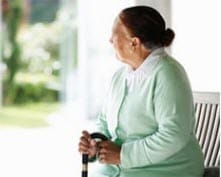Pressure Ulcers — A Sign of Nursing Home Neglect
Bedsores (also known as pressure ulcers, pressure sores, pressure injuries or decubitus ulcers) are usually suffered by bed-bound patients who cannot shift positions. If your loved one has suffered bedsores after entering a nursing home, it may be a sign of neglect. Pressure sores can occur if the resident is frequently bed bound or chair bound without the ability to change positions frequently to relieve pressure on vulnerable areas of the body.
At Konicek & Dillon, P.C., our nursing home lawyers represents victims of nursing home negligence. If your loved one has suffered a bedsore injury in a nursing home or another extended care facility, we offer a free initial consultation to discuss your case. With offices in Geneva and Chicago, we represent clients throughout Illinois and the Midwest.
A Preventable Injury
Bedsores are a painful and dehumanizing injury that can lead to fatal infections. Pressure ulcers can lead the skin to rot or become “necrotic,” leading to severe pain and a foul smell. Often pressure ulcers are avoidable with good care. It is important to move immobile patients regularly and to ensure that at-risk residents get adequate nutrition and hydration to prevent bedsores from developing. Ensuring that nursing home residents do not sit in urine or feces is also a critical component of pressure ulcer prevention.
There are four stages of bedsores:
- Stage 1: A defined area of redness, often near the tailbone or on the backs of heels
- Stage 2: An abrasion, blister or shallow crater
- Stage 3: A deep crater
- Stage 4: Gaping wounds with dead tissue and damage to underlying muscle or bone
It is easier to prevent pressure sores than to treat them. Treatment for bedsores involves removing pressure from the affected tissue, removing dead tissue either with medication, surgical debridement, or lavage, and keeping both the patient and the bedding clean. Bedsores can lead to sepsis and other infections. They cause pain, agony and even death.
Action Plan
If you believe that a nursing home is providing inadequate care or causing harm to you or a loved one:
- Document everything that occurs, including noting what you see, say, and hear: the nursing home staff are documenting, you should too. Don’t let their version be the only written version of events.
- Complain to the administrator, director of nursing, assistant director of nursing, and any other management or charge nurse who might have the ability to correct the problems you experience.
- Report the poor care, intentional bad acts, and neglect to the Illinois Department of Public Health. Be specific, detailed and complete.
- Call Konicek & Dillon, P.C., if you believe that you or a loved one has been injured due to nursing home negligence.
Free Attorney Consultation
To discuss your case with our Geneva nursing home bedsore attorneys, call 630-313-2071 or fill out the contact form on this website. We will visit with you at your home, office, nursing home, hospital, or wherever else is convenient for you.

